Resistance activists look past Trump's State of the Union speech to November
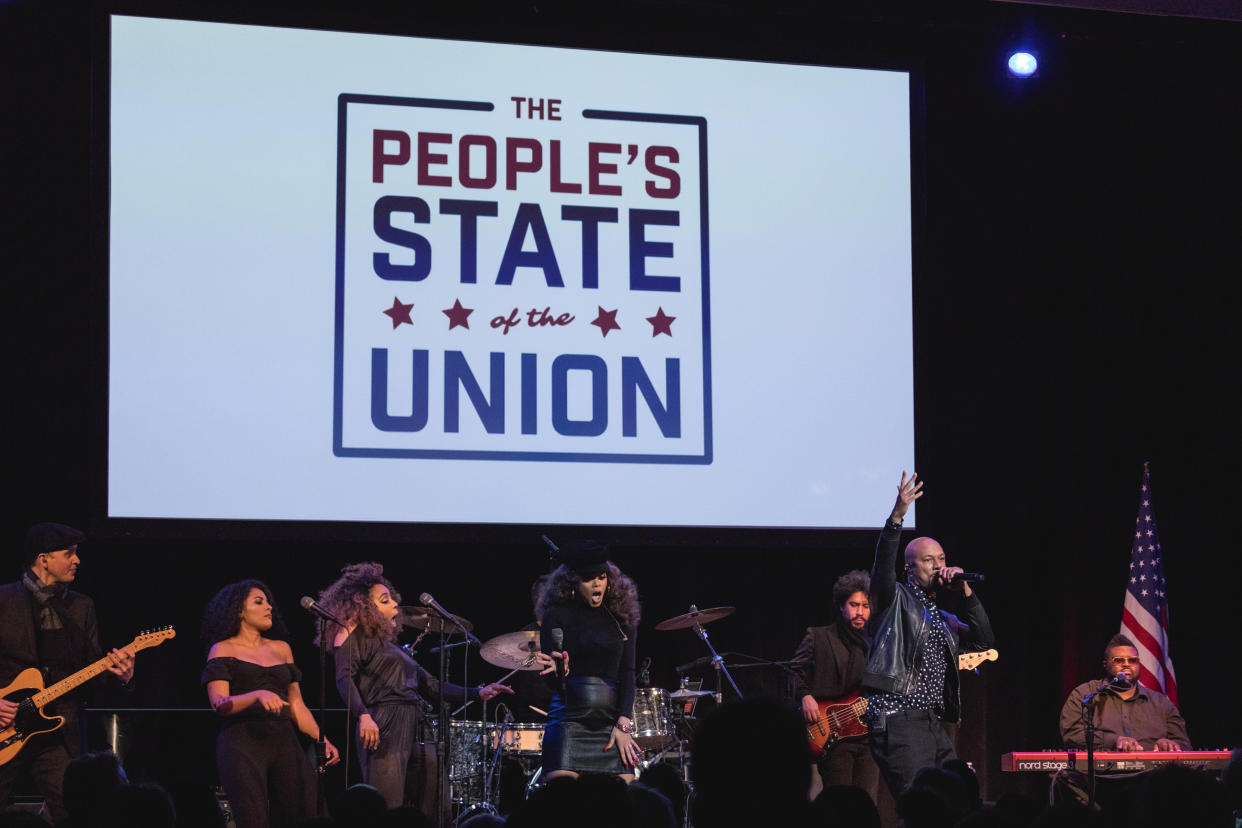
“Social justice cocktails! Ice-cold water! You can’t have revolution without cold water!”
Mike, a refreshments vendor at the Town Hall theater in midtown Manhattan who declined to give a last name, tailored his pitch to the crowd Monday evening as he hawked water at $5 a bottle.
It was 24 hours before President Trump’s first State of the Union speech in Washington, and a mixture of well-heeled New Yorkers, boldface names, service and domestic workers, college students and activists had come out on a cold night for an event billed as the People’s State of the Union. Trump’s impending speech was the nominal occasion, but the event — which drew 500,000 views on a Facebook live stream that evening — was also a way for resistance movement activists to recharge for the coming struggle.
A broad array of social justice groups, backed by celebrity star power, had come together for three hours of speeches and music, hoping to buck up their spirits after a rough and tiring year — and looking ahead to the challenge of organizing to capture a majority in the House of Representatives and hundreds or even 1,000 additional state legislative seats this year.
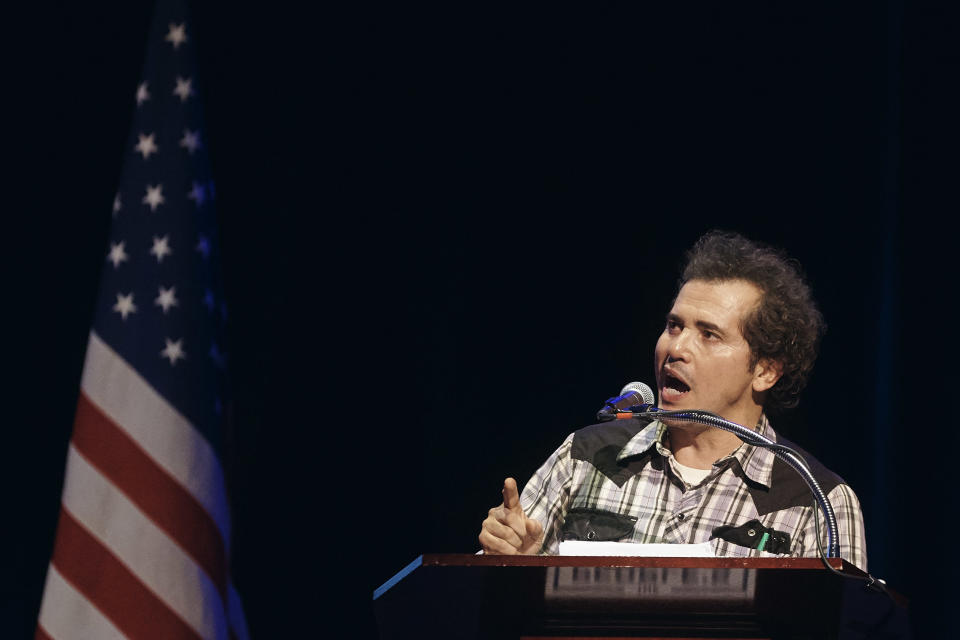
“In 2018, with so many races fast approaching, it is vital that we work to elect progressive, diverse candidates for Congress and state legislatures across this country. But it is not just about voting — not anymore. Given the current state of the Union, fighting for our democracy is going to require all of us, everyday people, to step up and take action,” said actress Cynthia Nixon, who spoke from the New York stage in a lineup that also featured John Leguizamo, Mark Ruffalo, Lee Daniels, Amy Schumer, Wanda Sykes, Kathy Najimy and Michael Moore, with musical appearances by Rufus Wainwright, Andra Day and Common.
“In 2018 each one of us has to do everything we can to reclaim our democracy from foreign and domestic threats that aim to imperil it. It is on us. There is no cavalry coming. We are the cavalry,” she continued, to applause.
More than anything new Trump said, or was likely to say, the State of the Union was for the resistance activist groups an opportunity to rally the troops, boost morale and point to the future. In Washington, Planned Parenthood and an array of women’s groups counterprogrammed against the president’s speech Tuesday night with a program of music and speeches at the National Press Club under the rubric “The State of Our Union.” It was the first time the organization hosted an event during a State of the Union, talking to supporters over the background distractions of the speech as it unfurled on social media. And there too the byword was 2018.
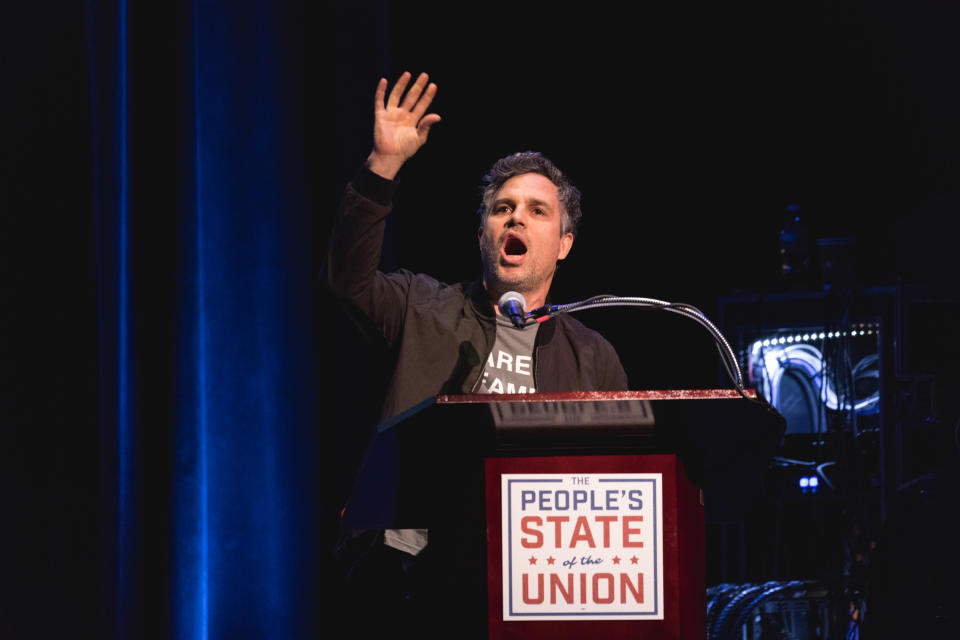
“We are laser-focused on winning a pro-women’s health majority in Congress. Laser-focused. I dream about it at night. I wake up thinking about it in the morning. I think about nothing else,” Deirdre Schifeling, executive director of Planned Parenthood Action Fund, told Yahoo News. “And at state level. It’s long overdue, and 2018 is our chance to do it.”
From the very beginnings of the resistance movement, it has sought to unite many different streams into a common cause of fighting back against Trump and Republican control of Congress. But the events this week around the State of the Union, a cacophony of online resistance movement speeches and live streams, showcased the progress that has been made in forging a unified front.
Across a year of marches and protests and grassroots get-out-the-vote efforts, the leaders of different groups have gotten to know each other. There have been Slack channels and conference calls and after-action working groups, endless call-your-congressman drives and letter-writing campaigns and difficult conversations about whose voices should lead. Celebrities who once made star turns at activist events and did a little fundraising have become activists inside their own industries, backed by the support of the new women’s movement and using their stardom to spotlight it. Minority rights groups that existed before Trump was elected — groups fighting police violence against African-Americans, the deportation of undocumented Latin American immigrants brought to America as children, and for LGBTQ rights — have been become a key part of the larger movement that has sprung up since the election, merging with the growing river of women’s activist groups and newly formed efforts to defend refugees and religious minorities.
“I think the most powerful thing that’s come from all the attacks that many of our communities are under is the strong unity that I feel … in my bones today,” said Christina Jimenez, executive director of United We Dream, the immigrant youth network, from the stage in New York. “I know that the state of our union — this union — all of these social justice movements coming together — is stronger than ever. And that’s what scares them.”
“Are you ready to hit the polls?” she cried, to cheers.

“There is no more important day this year” than Nov. 6, said filmmaker Moore in New York. “Not your birthday. Not your wedding anniversary. Not flag day. … My friends, as much as I tried to warn the country that Trump was going to win by winning those four states, I am here tonight to tell you that I believe that we can accomplish this by a tsunami of voters overwhelming the polling places on November 6 so that no poll will be able to close at its stated time.”
He offered four things to do in 2018 so that there is “a widespread massive removal of Republicans from the House and the Senate the likes of which this country has never seen.” The starting point: “Over the next 10 months, I want you to identify 20 people who did not vote in the 2016 election and get them all to vote on Election Day, November 6.” Also on the list: running for office, demanding that Democratic candidates weigh in on the impeachment of Trump and not worrying about Mike Pence.
“The purpose of the 2018 election is we are electing the jury for the trial of Donald J. Trump,” said Moore.
Getting an additional 2 million nonvoters to vote would also help, he said. Registering an additional 1 million voters from traditionally disenfranchised groups in critical states is the big 2018 goal for the Women’s March. “Our undocumented brothers and sisters cannot vote, so we must vote for them,” said Paula Mendoza, a leader of the March organization.
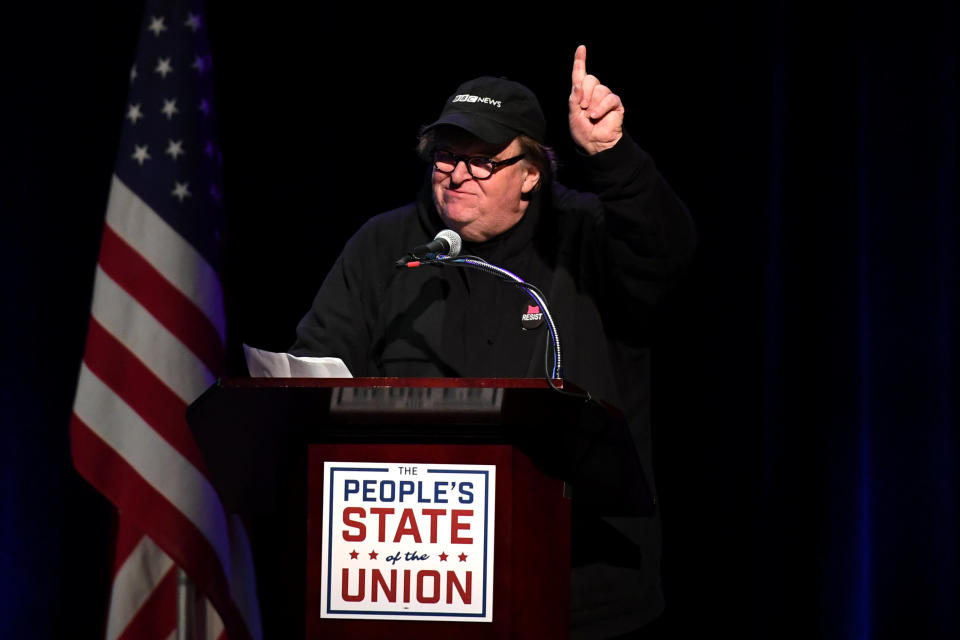
In New York, there was little mincing of words and none of the soft, polished phrases favored by D.C. advocacy groups. No one was worried about being mocked by conservatives for a too-bald focus on diversity or shamed on Twitter as unserious for raising, as Leguizamo did, the specter of Nazi Germany.
Leaders of indigenous rights, labor, immigrant rights, social justice and environmental groups were all there “to start to lay out the path for a greater victory in 2018. Because we’re winning back Congress,” Ruffalo proclaimed.
The evening was raw, angry and historically aware of its place in the decades’ — or centuries’ — long struggle for civil rights that sometimes involves elected politicians and sometimes doesn’t, but always, always involves figures from American culture. Singer Andra Day, who performed alone and with rapper Common at the People’s State of the Union, just as she had the night before at the Grammy Awards, urged the audience to have the resilience “to continue the fight, to finish the fight. Because it’s worth it even if you don’t see the results in this lifetime.”
The women’s event in Washington was a bit more upbeat and cheerful, perhaps because Planned Parenthood has succeeded over the past year in fending off congressional efforts to defund the organization or repeal the Affordable Care Act wholesale, while at the same time seeing an enormous outpouring of grassroots support and donations.
The anger and despair of the immediate postelection period has given way to a new excitement as the resistance movement has proved not just durable but bigger and stronger than many observers expected. “We are in an amazing movement moment, more than I have ever seen,” Ben Halle, press secretary for Planned Parenthood Federation of America, told Yahoo News about the new “united front” on the left. The “Our State of the Union” event came together in a week and a half.
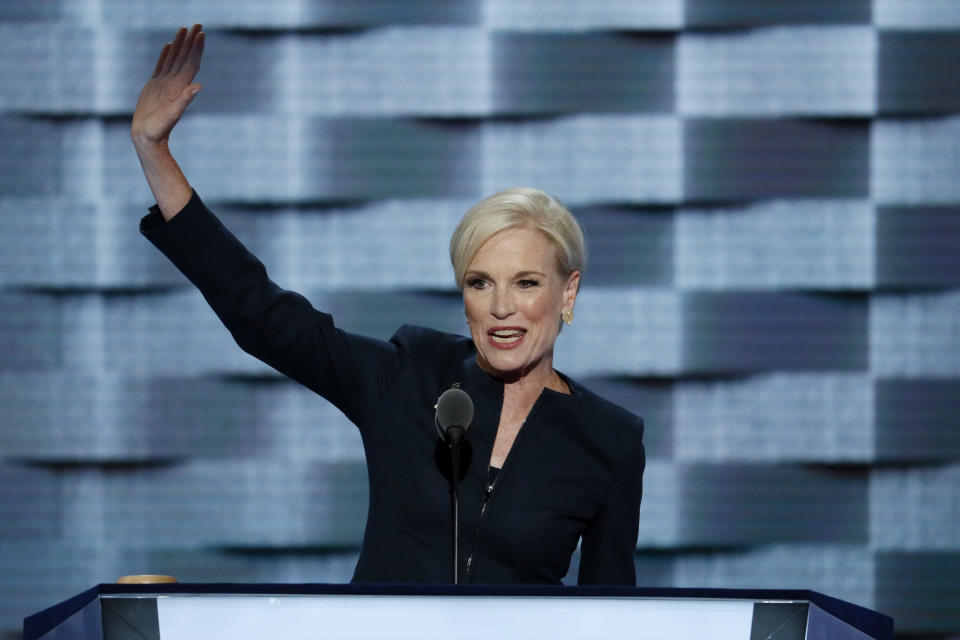
Cecile Richards, the president of Planned Parenthood who recently announced plans to retire, spoke as Trump’s remarks wound down. “It’s not that women haven’t been speaking. For centuries women have been speaking out, right? But now we have found a new frequency, and folks are finally listening,” she said, echoing the words of Tarana Burke, who a decade ago founded the anti-sexual violence group Me Too whose name has since become a hashtag.
“While so many women have been empowered to speak up in this last year, this is not just about us finding our voices. We have been raising our voices. I’m talking about issues that plague us in our communities for decades. The real difference is our renewed commitment to working collectively across industries and across issues, like we are seeing tonight,” said Burke at the event. “We have no choice but to lean into our collective power” and move out of issue silos, she said.
Amid the fatigue of ceaseless activism, the uniting of once separate movements into something larger is something for the activists to hang on to. “It’s inspiring to see so many organizations and activists from a broad cross-section of movements coming together to review the state of the resistance,” the Women’s March said in a statement after Trump’s speech. “It’s time that we channel the energy and activism into tangible strategies and concrete wins in 2018.”
“The one silver lining in Trump is that we have created the mother of all movements,” Ruffalo had said, opening the People’s State of the Union in Manhattan. “We have come together. It’s a transformational, international movement of decency. Our eyes wide open. We are wide awake. And we are looking around at each other for the first time in probably decades.”
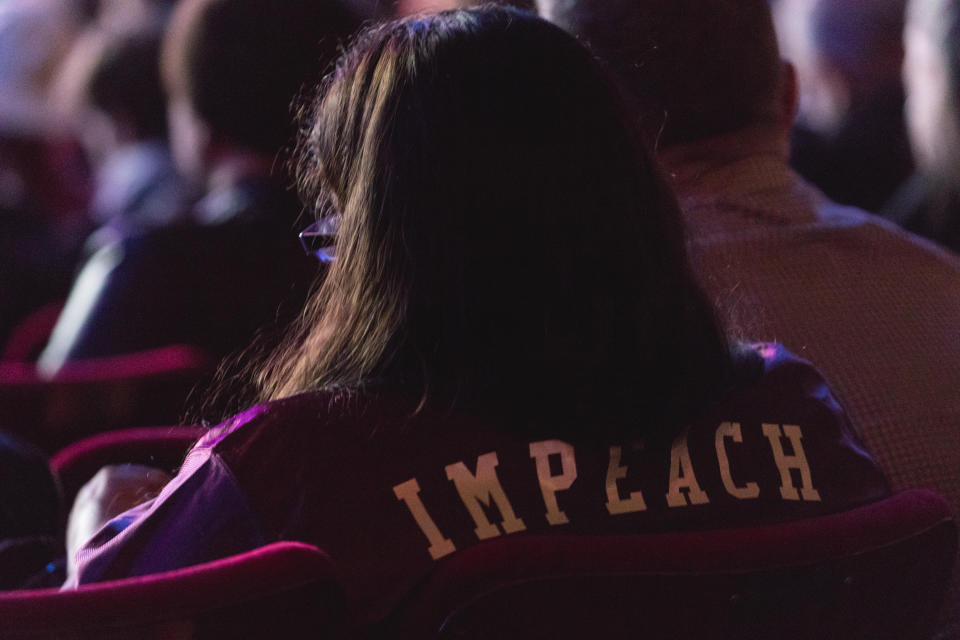
Read more from Yahoo News:
